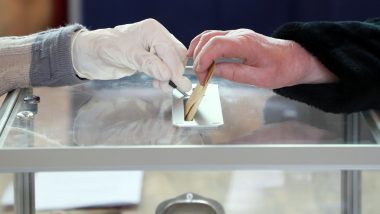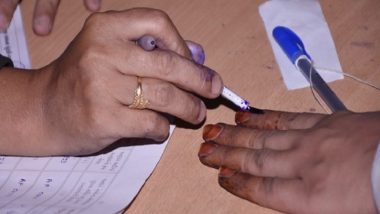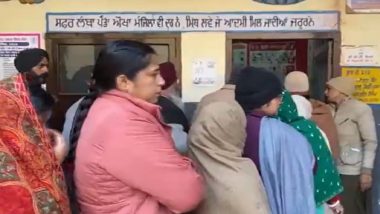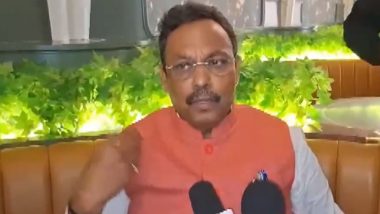Singapore, July 10: The polls in Singapore has been extended by two hours as polling stations were witnessing long lines as people are taking precautions o to ensure social distancing amid Covid-19 pandemic.
Earlier the polling stations were supposed to be closed at 8 pm but now after extension, the polls which were opened at 8 am, will now close at 10pm, after the Elections Department announced a two-hour extension to allow voters more time to head to the ballot box, South China Morning Post reported.
As the polls are held amid the Covid-19 pandemic, mask-wearing citizens are seen casting their ballots under strict precautions to ensure social distancing.
Elderly citizens had priority to vote in the morning, while others were given suggested two-hour "time bands" to cast their ballots, in order to reduce crowding. The Elections Department urged younger voters not to accompany elderly citizens "to keep to their assigned voting time-bands after 12 noon".
The number of polling stations has been increased from 880 to 1,100 from the last elections in order to reduce overcrowding. Social distancing measures are being enforced by polling officials. Young and old voters have been assigned different times to cast their votes. Voters are being provided with sanitisers upon arrival and those with higher than average body temperatures are being turned away.
The nine-day campaigning period - which ended on Wednesday, ahead of a 24-hour "cooling-off period" before the vote - turned out to be far more acrimonious than observers had expected. The vote is being conducted by the casting of ballot papers with voters putting a cross mark next to the names of their preferred candidate.
Prime Minister Lee Hsien Loong called the snap vote in June, soon after the easing of a two-month partial lockdown, citing the need to urgently refresh the PAP's mandate during what he termed a "crisis of a generation". The government's term was due to end in January.
The PAP, which won 83 of 89 seats in the most recent parliament, is fielding candidates in all constituencies. The ruling party will duel in first-past-the-post contests with one of 10 opposition parties in all but two precincts, where it faces three-cornered fights.
In a scheme in place since 1984 to ensure there are voices from non-ruling parties in parliament, the constitution allows for up to 12 non-constituency MPs, who are the "best losers" from the opposition.
(This is an unedited and auto-generated story from Syndicated News feed, LatestLY Staff may not have modified or edited the content body)













 Quickly
Quickly





















